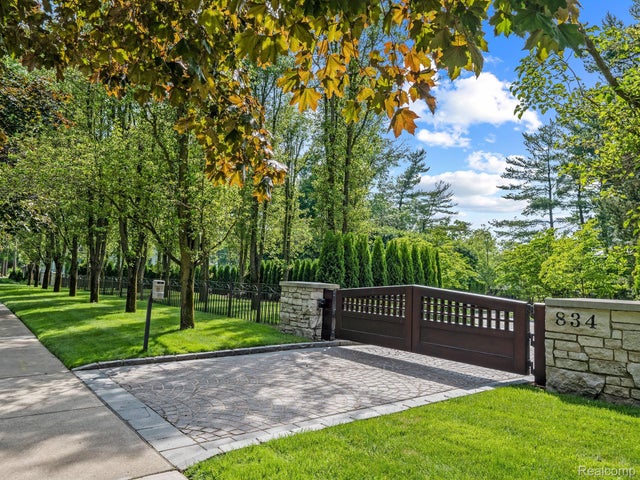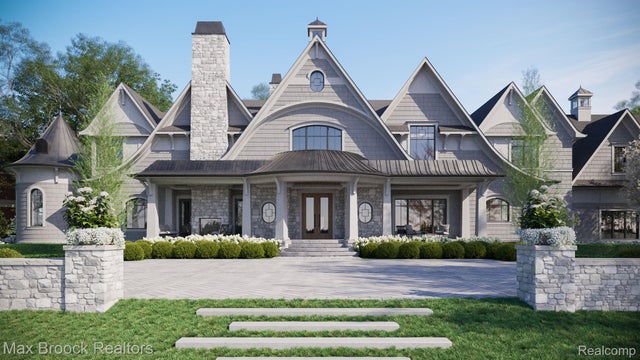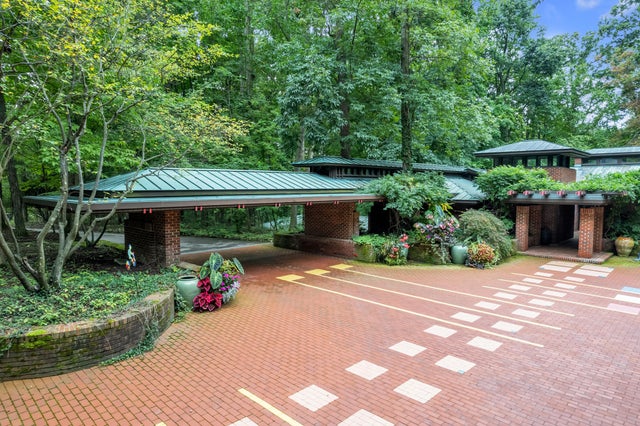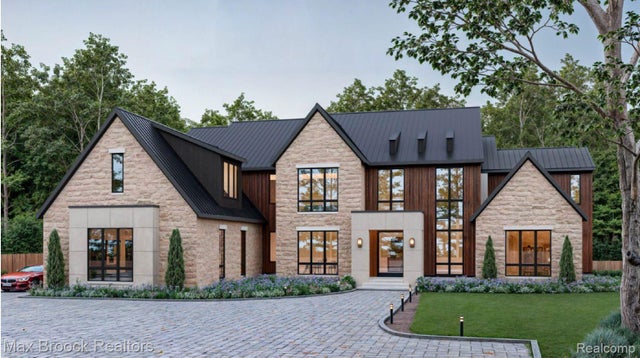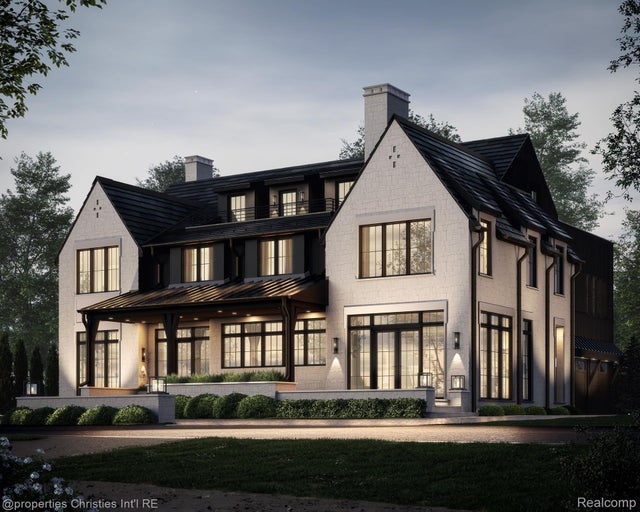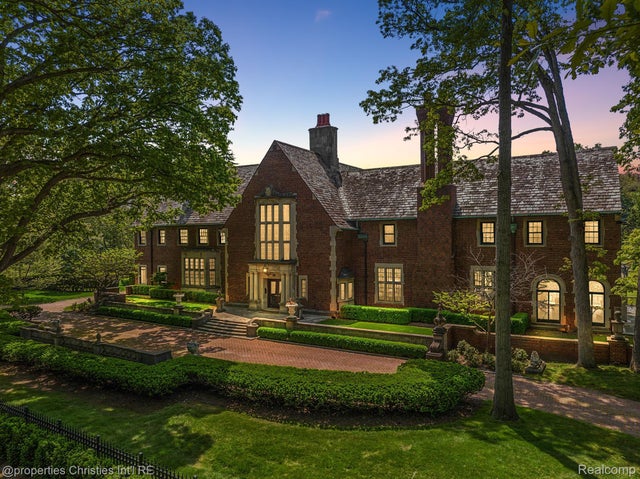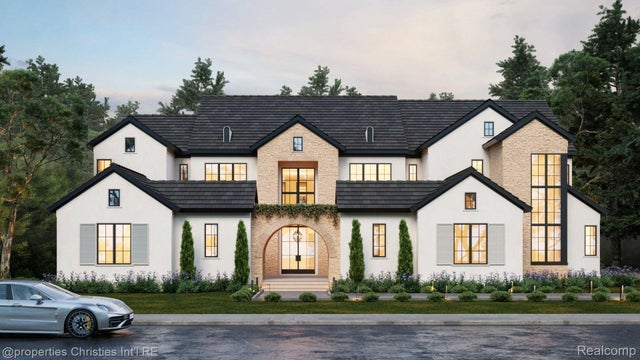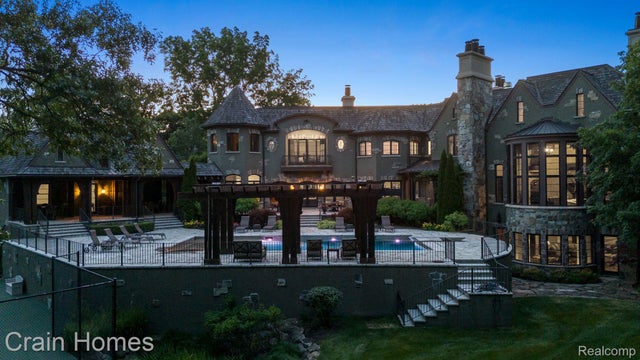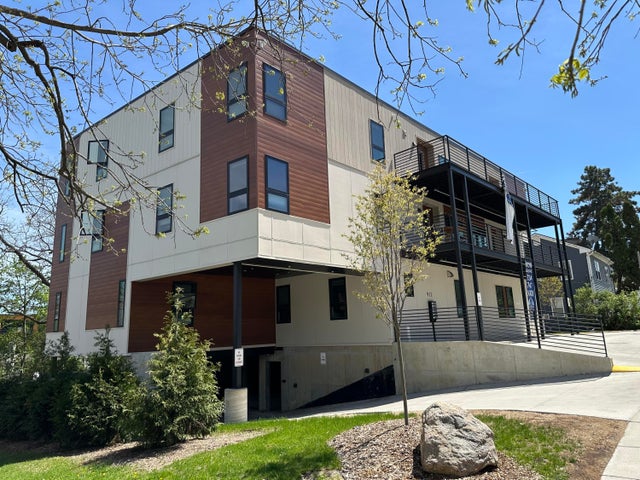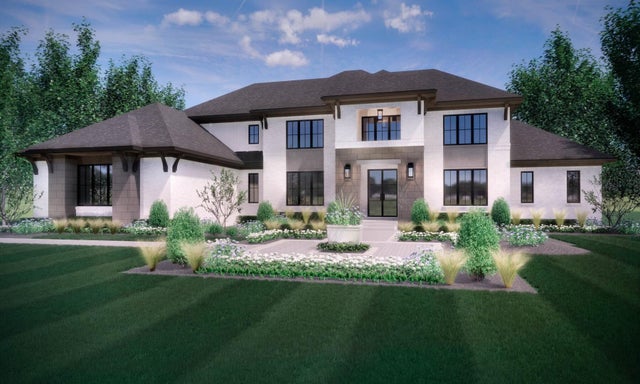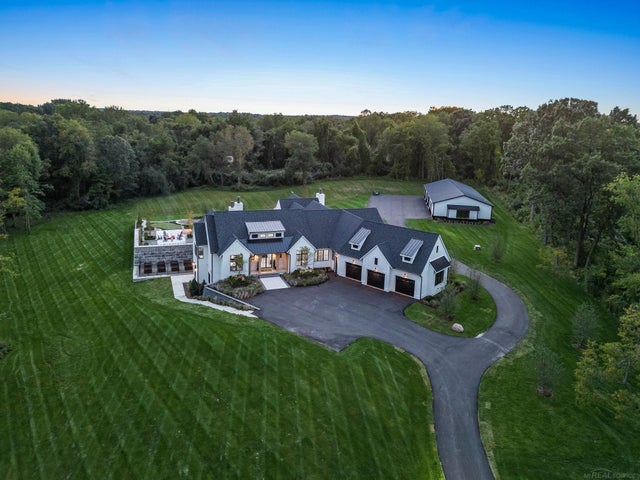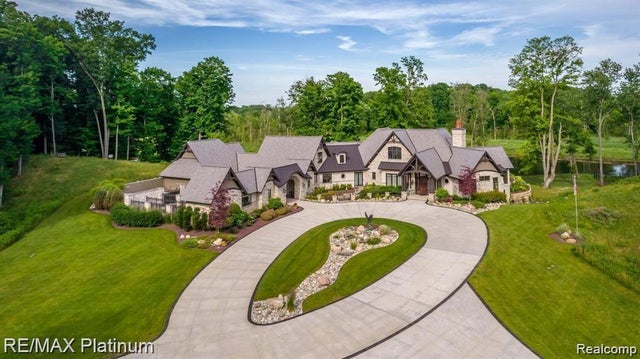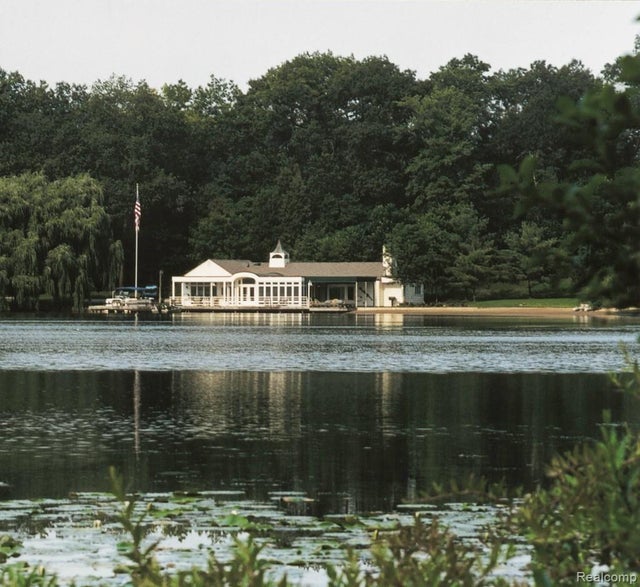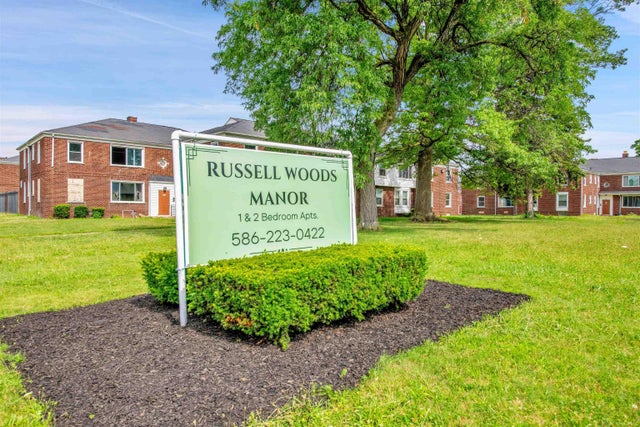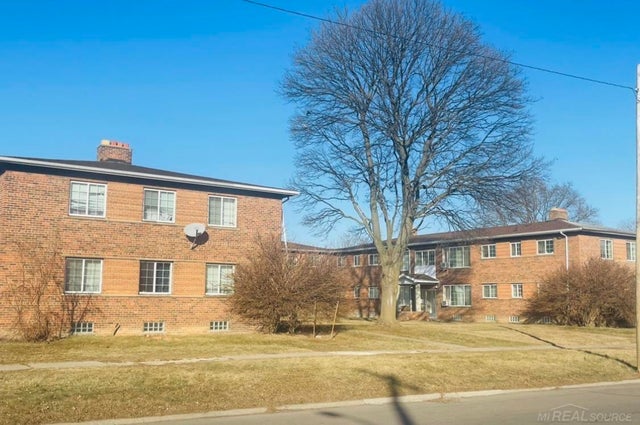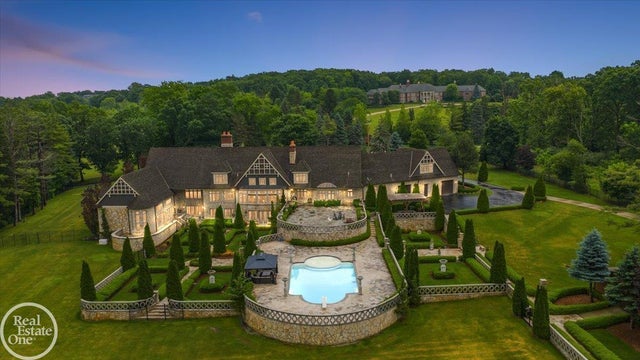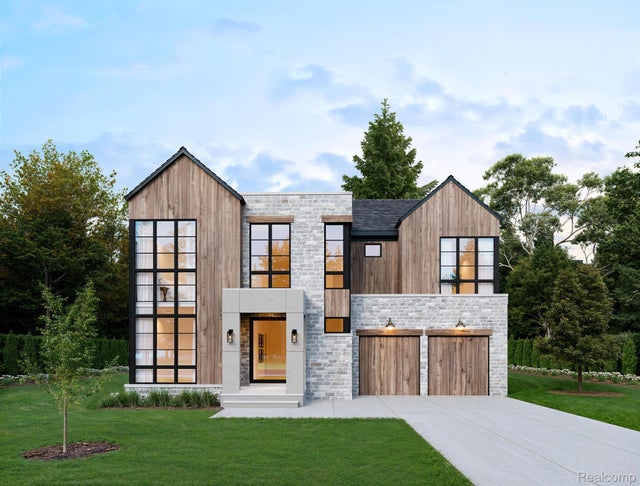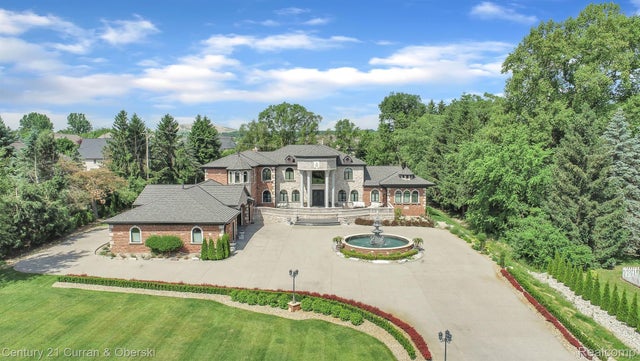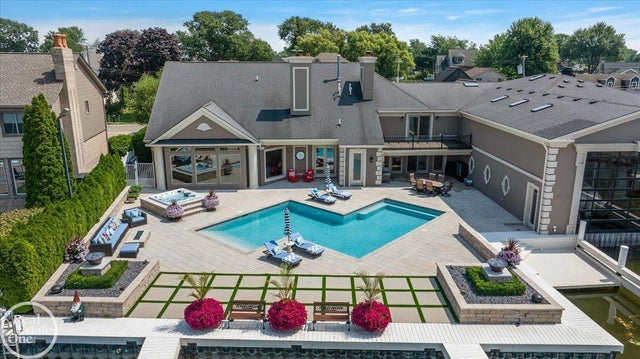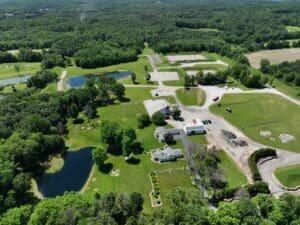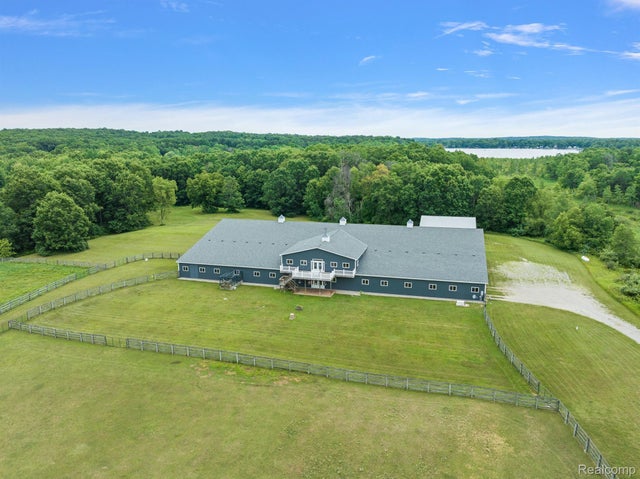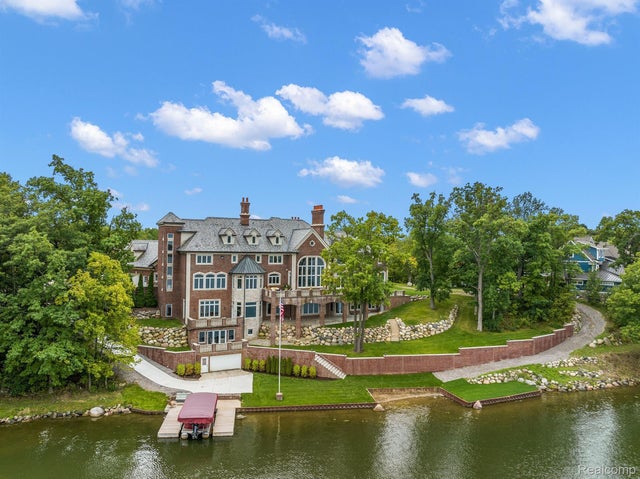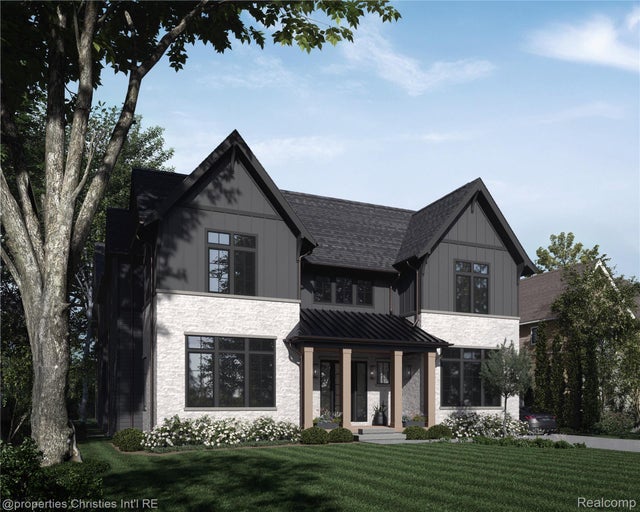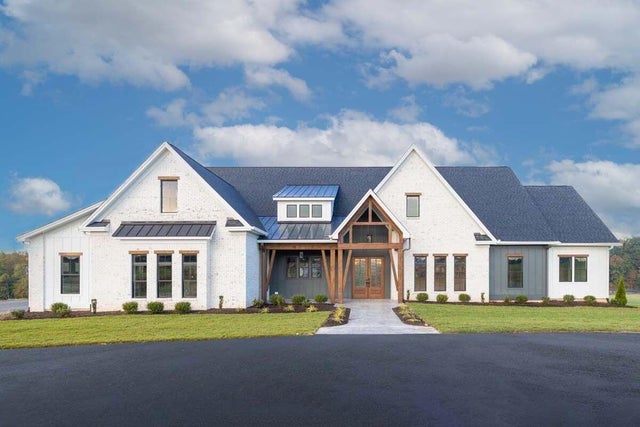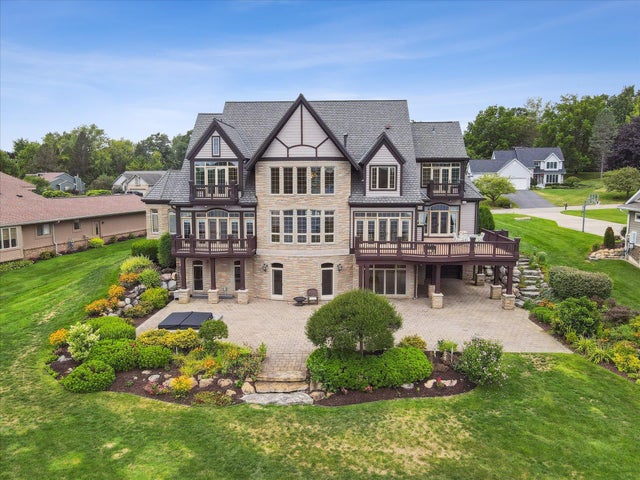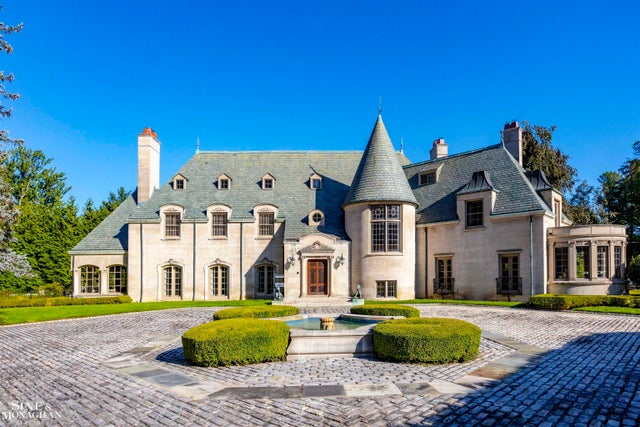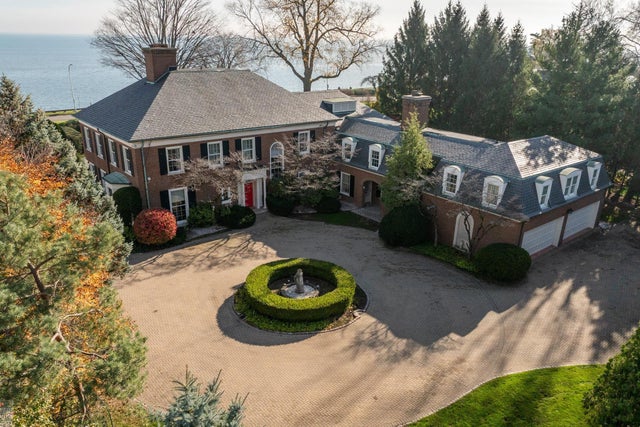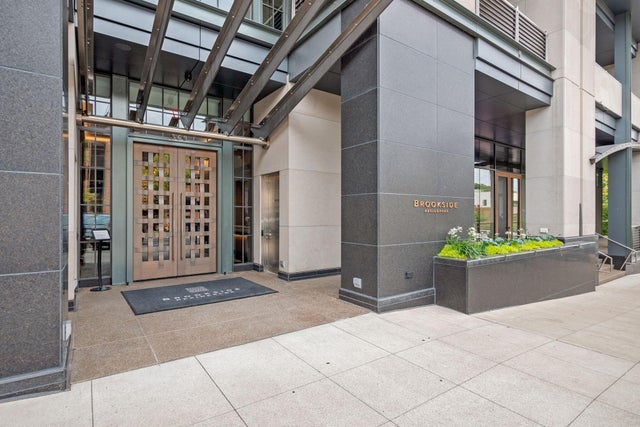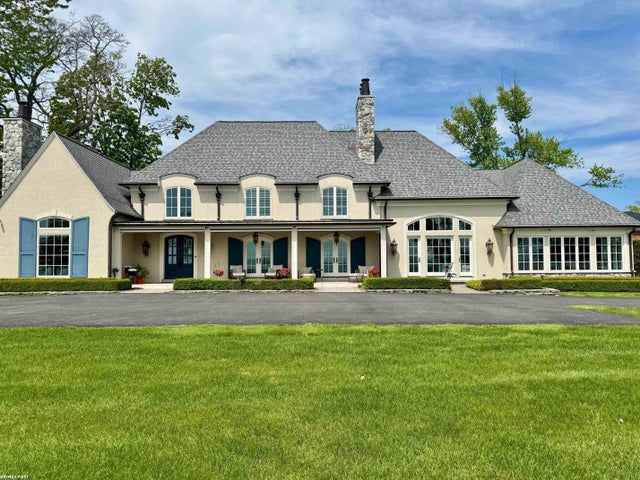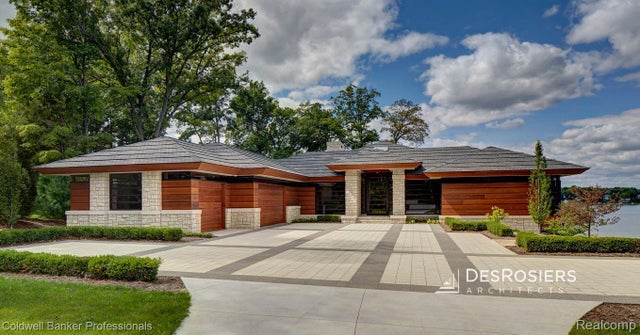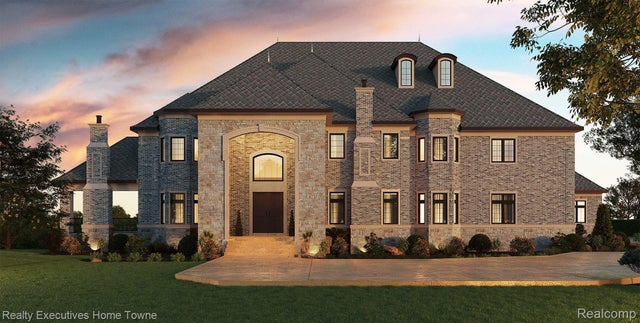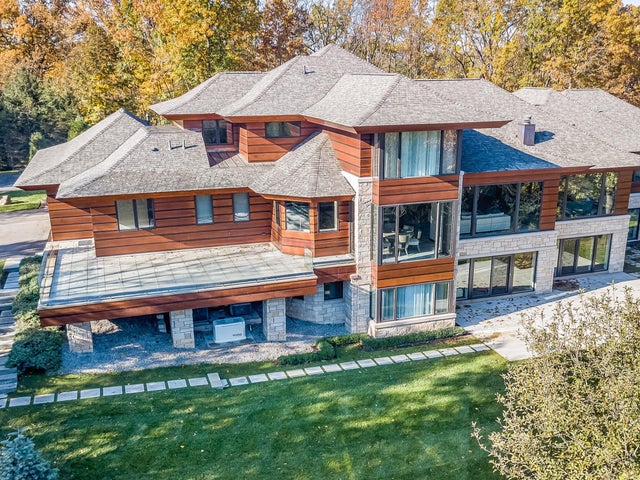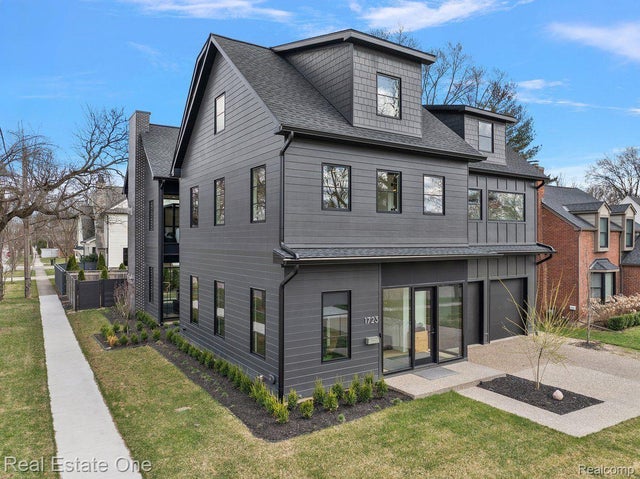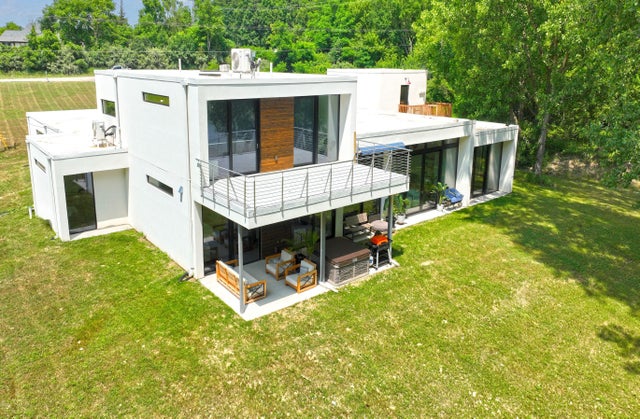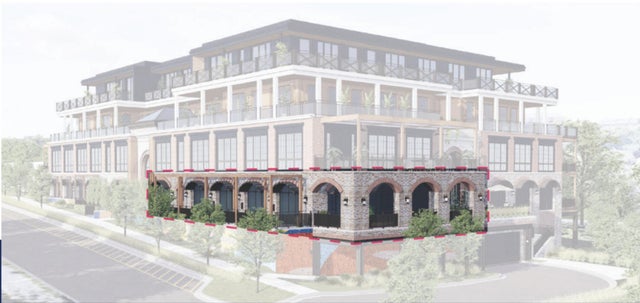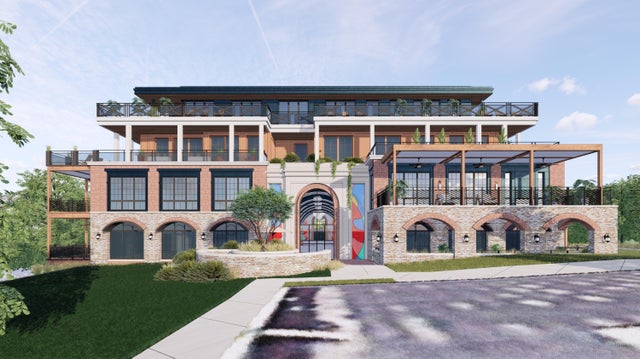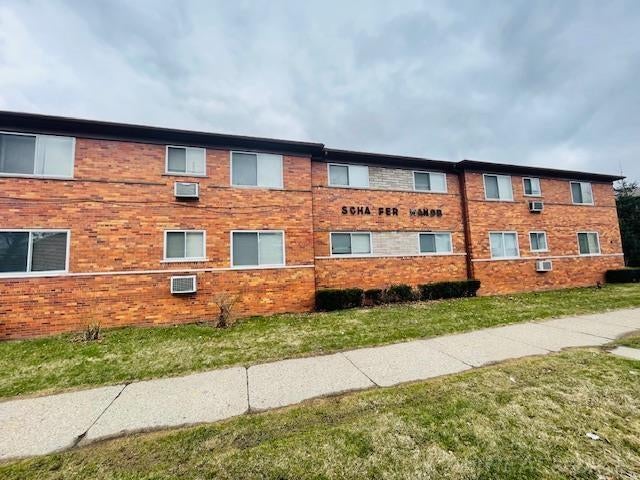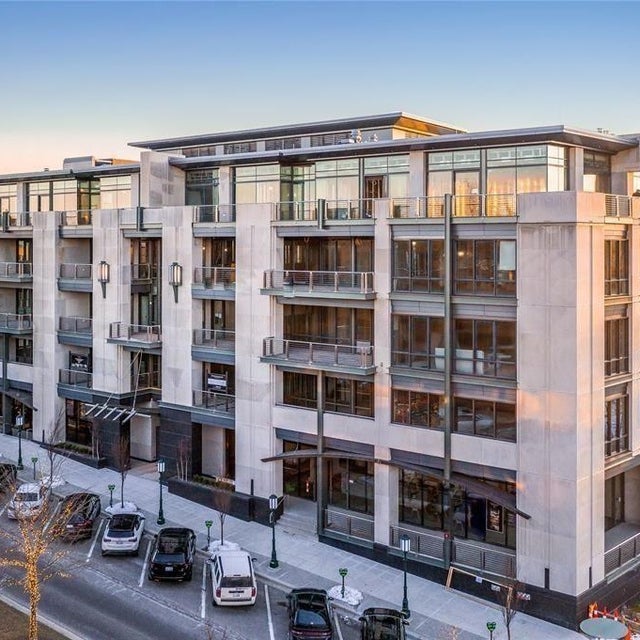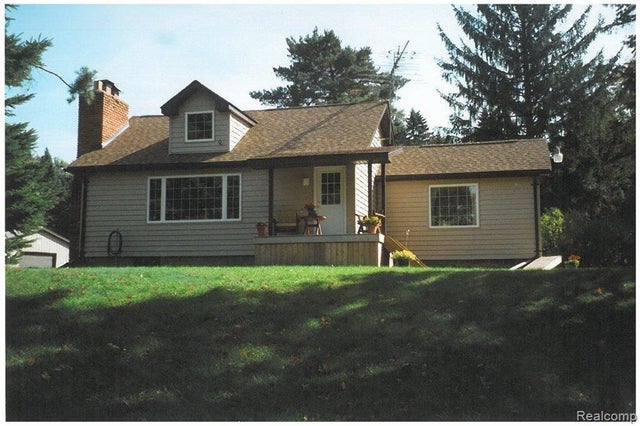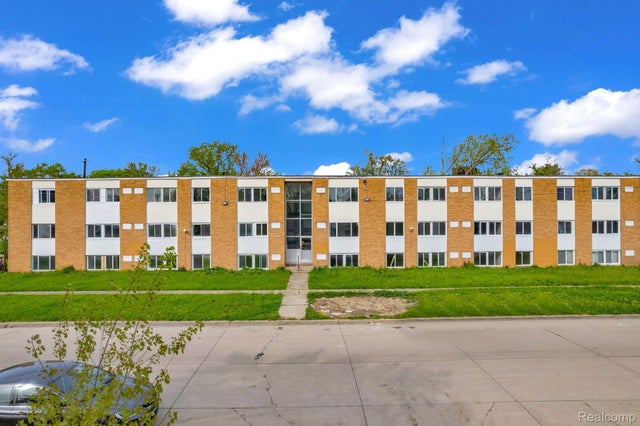When Metro Detroit faces tough times—be it a sudden flood in the neighborhood or an economic downturn that leaves families in need—Detroiters know how to pull together. It’s a part of our DNA. Now one of the region’s most iconic neighbors, Ford Motor Company, is revving up a new way of giving back that could supercharge these community efforts. Ford has launched an initiative called Ford Building Together, a program that unites the entire “Ford family” – from corporate leaders and factory workers to local dealerships and even Ford’s fleet of vehicles – to respond to crises and strengthen communities in a smarter, more coordinated way. In a nutshell, Ford is leveraging its immense resources and hometown spirit to make sure help is there when Michigan families need it most.
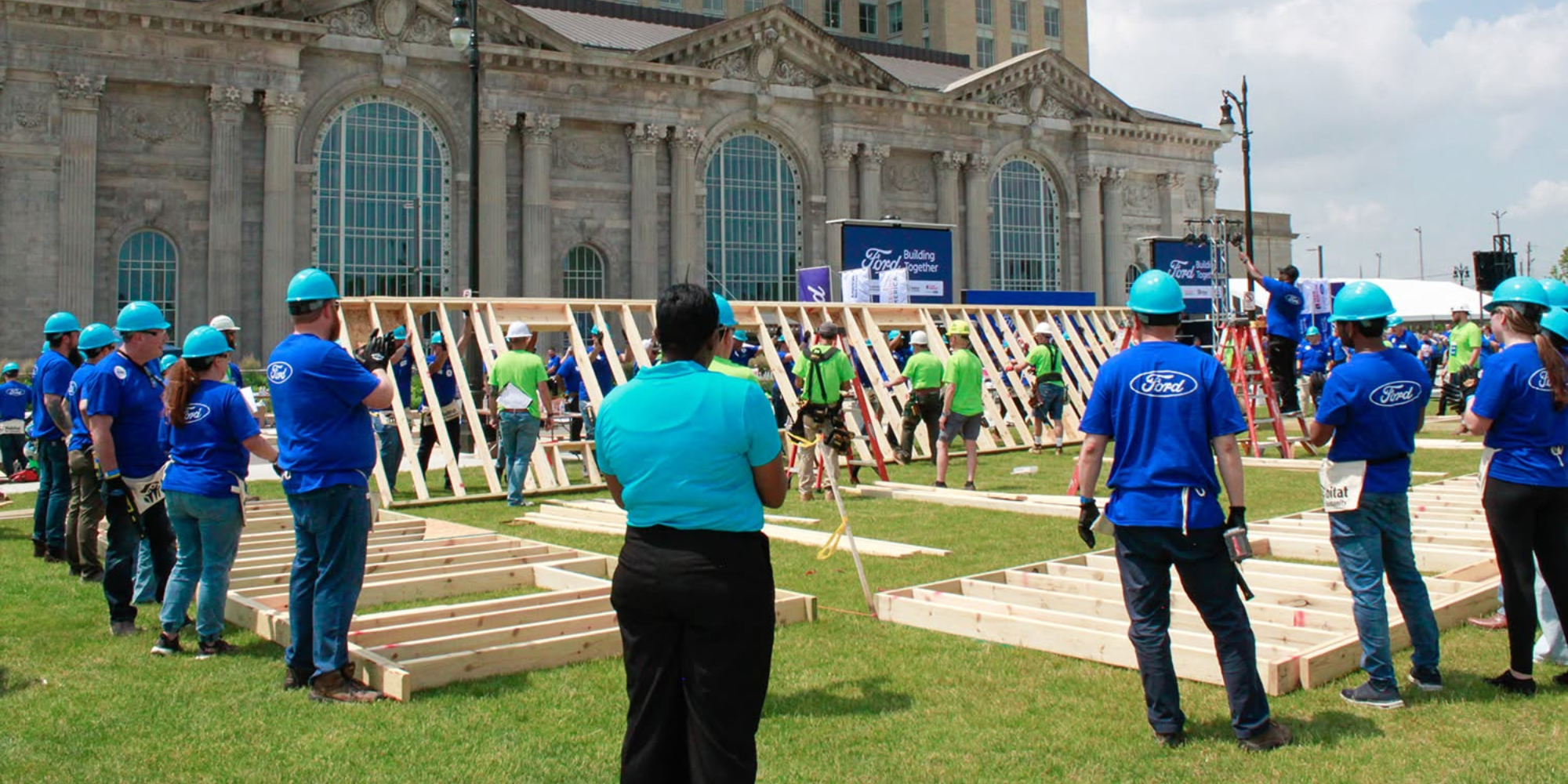 Habitat for Humanity, Facebook
Habitat for Humanity, Facebook
What is Ford Building Together?
Ford Building Together is the automaker’s fresh take on corporate philanthropy, and it’s anything but business-as-usual. Announced in June at a lively event in Detroit’s historic Michigan Central Station, the program aims to bring Ford’s people, dealerships, and know-how together to amplify the impact of charitable work. This means that rather than writing a check and stepping aside, Ford is rolling up its sleeves alongside nonprofit partners to tackle challenges on the ground. The initiative centers on four major nonprofit organizations that Ford has long supported: the American Red Cross, Feeding America, Habitat for Humanity, and Team Rubicon. By focusing on these key partners, Ford isn’t spreading itself thin; it’s concentrating its efforts where it can move the needle the most.
Key features of the Ford Building Together program include:
- Unified Crisis Response: Ford’s corporate team, employees, and dealership network will coordinate closely with the four nonprofits when responding to disasters or community crises. This “all hands on deck” approach ensures a faster, smarter relief effort, whether it’s aiding flood victims in Michigan or wildfire recovery out West. Every part of Ford – from its nationwide dealerships to its fleet of vehicles – is being tapped as a resource for good.
- Local Dealership Activations: Dealerships aren’t just car lots anymore; they’re turning into community hubs. Under this program, Ford dealers across Metro Detroit and the country will host blood drives, food collections, and more. Imagine stopping by your Ford dealer in Macomb County and finding a Red Cross blood drive in the showroom, or dropping off canned goods at a food drive hosted by a Wayne County Ford dealership. In fact, Michigan dealerships have already started pitching in with blood donation events to boost the Red Cross supply. It’s a grassroots way to make volunteering convenient and hyper-local.
- Boosted Volunteer Power: Ford has dramatically increased paid time off for employees to volunteer – from 16 hours to a generous 56 hours per year. That’s seven full work days employees can now devote to mentoring teens, hammering nails at a Habitat build, distributing meals, or deploying with Team Rubicon for disaster aid. Ford employees, from engineers in Dearborn to assembly line workers in Wayne, are encouraged to use this time to lend their expertise to these partner nonprofits. It’s already working: Ford reports that volunteer activity has surged as folks seize the chance to give back on the company’s time.
- Sharing Wheels and Tech: An automaker can offer more than money – it has wheels and tech know-how. Ford is expanding a vehicle loaner program so that nonprofits can borrow Ford trucks, vans, or other vehicles when needed for relief work. Whether it’s transporting supplies to a disaster site or delivering food to a community center, having an extra F-150 or Transit van can be a game-changer. Beyond vehicles, Ford employees are also contributing their skills in logistics, engineering and project management to help these charities operate more efficiently. As Mary Culler, president of Ford Philanthropy, put it, one goal is to bring Ford’s know-how to bear – experts in fleet management, marketing, distribution and more – to help each nonprofit expand its impact.
- Financial Commitments with Focus: Of course, funding is still a critical part of philanthropy. Ford has kicked off Building Together with an initial $7 million in grants divided among the four partner nonprofits. In an era when many charities are feeling the squeeze of declining donations, this infusion is timely. But Ford’s giving isn’t a blank check; it’s strategically supporting organizations that excel in disaster relief and community building, ensuring dollars go where they’ll make the most difference.
Bringing the Whole Ford Family to the Table
One of the most powerful aspects of Ford’s new approach is how it unites the entire Ford family – not just in name but in action. Mary Culler said it plainly: Ford realized it could do more than just donate money; it could mobilize everything it has – people, dealerships, vehicles, and expertise – to magnify its impact. Think about it: Ford employs about 170,000 people worldwide, many of them right here in Metro Detroit. These are our neighbors, friends, and family members. By empowering every employee with 56 hours of paid volunteer time, Ford is essentially saying, “Go out there and help build the community.” And employees are seizing the opportunity. In Detroit, it’s not uncommon now to see groups of Ford volunteers in matching blue shirts spending a day at Gleaners Community Food Bank or helping frame a house with Habitat for Humanity. In fact, Ford’s workforce has logged nearly 2 million volunteer hours since it launched a volunteer corps in 2005, and now that number is poised to grow even faster.
Local Ford dealers are equally crucial players. To Metro Detroiters, car dealerships are familiar landmarks – and many dealer principals are second- or third-generation family businesses deeply rooted in their towns. Ford Building Together leverages this by turning dealerships into neighborhood rally points for good causes. We’re already seeing it: dealers in Michigan are hosting Red Cross blood drives this summer as part of the initiative, contributing to the life-saving mission of keeping hospitals stocked with blood. Elsewhere, Ford dealers in Texas are helping food banks distribute meals, and Minnesota dealers have been gathering tools and materials for Habitat for Humanity projects. Here in Metro Detroit, don’t be surprised if your local dealer in places like Novi or Sterling Heights starts organizing community events – from can drives to disaster preparedness workshops – because that’s exactly the direction Ford has in mind.
This “whole company” approach is a real innovation in corporate philanthropy. It recognizes that **Ford’s strength isn’t just its checkbook, but its people and presence in virtually every community in America. By bringing together everyone from the factory floor to the corner showroom, Ford is creating a network effect: each dealership and employee becomes a multiplying force for good in their town. As one business expert observed, when you leverage local expertise and partners on this scale, you can more than double the effectiveness of giving – the impact is exponential. In plain terms, a coordinated effort can accomplish far more than isolated goodwill activities. Ford is essentially treating community support with the same teamwork that it applies to building cars.
.png) Habitat for Humanity, Facebook
Habitat for Humanity, Facebook
Focus on Four Key Partners: Getting Specific
Another thing that makes Ford’s Building Together program stand out is its targeted focus on four longstanding partner organizations, each addressing a fundamental aspect of community well-being. Let’s break them down, because each one plays a unique role:
- American Red Cross – Disaster Relief & Blood Services: Ford and the Red Cross have history together that dates back over a century (Henry Ford donated Model T cars to serve as ambulances during World War I). Under the new initiative, Ford’s network is rallying to support the Red Cross mission like never before. Dealerships are hosting blood drives to bolster Michigan’s blood supply and beyond, and Ford volunteers are training in emergency response. Given that the Red Cross responds to more than 65,000 disasters every year nationwide – from house fires in Detroit to hurricanes on the coasts – having Ford’s vast family on call means more aid can reach people faster. This partnership is all about being prepared and present when the unexpected happens.
- Feeding America – Combating Hunger: Feeding America is the largest network of food banks in the country, and in Metro Detroit we know its local affiliates well: Gleaners Community Food Bank and Forgotten Harvest are part of this network, working tirelessly to fight hunger in our region. Ford’s dealerships will support food collection drives and logistics for Feeding America. Picture volunteers at a Ford showroom in Oakland County loading up trucks with canned goods destined for a Detroit pantry, or Ford’s supply chain experts helping optimize how food is distributed to families in need. With grocery prices high and food insecurity still a challenge for many Michigan families, this support is coming at a crucial time. (As a note of context, Feeding America’s network distributed over 6 billion meals in 2020 during the pandemic fallout, and the need remains significant.)
Ford volunteers pack potatoes at Gleaners Food Bank in Detroit, one of the many food banks in the Feeding America network. By lending helping hands and even engineering expertise (like improving inventory systems), Ford’s team boosts the efficiency of getting food to the families who need it. This kind of support goes beyond donations – it’s real elbow grease in the fight against hunger.
- Habitat for Humanity – Building Homes & Hope: In cities and suburbs alike, Habitat for Humanity has been creating homeownership opportunities and repairing houses for those who need a safe, affordable place to live. Here in Detroit, Habitat has built or renovated homes in neighborhoods from Morningside on the East Side to downriver communities, and even partnered on projects in nearby suburbs like Southfield and Dearborn. Ford has long volunteered with Habitat, but Building Together steps it up by coordinating tool drives and volunteer crews through local dealerships. For example, dealers in the Midwest have been collecting gently used tools and building materials for Habitat ReStores (the Habitat-run thrift shops that support building projects). More Ford volunteers will also take part in construction builds. With Ford granting employees more time to volunteer, we might see larger Ford teams helping Habitat put up walls, paint rooms, or landscape new yards – giving Detroit families keys to homes that are built stronger and more resilient. It’s literally about building together, neighbor to neighbor.
- Team Rubicon – Veteran-Led Disaster Response: Team Rubicon might be less known to the general public, but it’s a standout organization in disaster response, led by military veterans. They specialize in rushing into disaster zones (think tornadoes, floods, hurricanes) to provide hands-on aid, from clearing debris to rebuilding infrastructure. Ford’s partnership with Team Rubicon means hosting free disaster preparedness workshops (some Ford dealers in wildfire-prone Colorado have already done this) and possibly deploying Ford volunteers alongside Team Rubicon on relief missions. This is a big deal because Team Rubicon’s effectiveness comes from discipline and training – and now they’ll have more boots on the ground courtesy of Ford’s extended volunteer corps. For Metro Detroiters, it’s reassuring to know that if, say, severe storms or other emergencies hit our area, there’s a trained team ready to jump in and Ford is helping equip and staff that team. In fact, Ford and Team Rubicon worked together during recent California wildfires, with Ford dealers and the company collaborating to donate funds and supplies, a preview of what a unified effort can achieve.
Ford employees joining forces with Team Rubicon volunteers to rebuild a community center after a disaster. Ford’s new initiative encourages more of these collaborations, blending the company’s manpower with Team Rubicon’s veteran-led expertise to help communities recover faster. The program even extends to lending out Ford vehicles outfitted for rough conditions, ensuring responders can get wherever they’re needed. For families hit by disasters – whether in Michigan or across the country – this means quicker relief and a helping hand when it matters most.
Ford unveiled Building Together at Michigan Central Station. Explore the new tours, coffee shop, and history now breathing life into one of Detroit’s most iconic buildings.
Metro Detroit at the Heart of the Effort
While Ford’s new philanthropic strategy is national in scope, its heartbeat is right here in Metro Detroit. After all, this is Ford’s backyard – Dearborn is home to Ford’s headquarters, and Detroit is intertwined with the Ford legacy at every turn. It’s no surprise that Ford chose Michigan Central Station in Detroit’s Corktown neighborhood to unveil Building Together in a big way. If you drove past Michigan Avenue on launch day, you would have seen the once-abandoned train depot come alive with about 800 Ford volunteers in matching blue t-shirts gathering for a day of service and celebration. The Detroit Youth Choir (yes, the same talented group that wowed the nation on TV) performed to kick things off, adding a burst of local pride and energy. And in a fun twist, actor Bryan Cranston – whom many of us recognize as the voice of Ford’s commercials – took the stage to pump up the crowd. Cranston praised the volunteers as “living proof” of Ford’s community spirit, noting that for 122 years this company has been there for America, not just by building cars, but by building community. It was a goosebumps moment hearing a Hollywood star speak directly to the heart of what Detroiters value: showing up for each other, especially in the “darkest hour,” as Cranston put it.
But beyond the fanfare of the launch event, Detroit is also where the real work is happening and where we can see the impact firsthand. Consider Rouge Park on the city’s west side – one of Detroit’s largest public parks and a beloved community space. This year, Ford’s Volunteer Corps spent a day cleaning up Rouge Park, removing trash and sprucing up trails. That might sound small, but to the families who picnic there or the kids who use the ballfields, it makes a world of difference. Likewise, Ford volunteers have been a familiar sight at Gleaners Food Bank in Detroit’s Eastern Market district, sorting food donations, especially as food insecurity rose in recent years. These local volunteer projects aren’t new, but under Building Together they’re getting a boost – more hands to help and a promise of sustained support.
Crucially, Metro Detroit’s communities stand to benefit directly from Ford’s ramped-up philanthropy. We all remember challenges our region has faced: the devastating floods that hit basement after basement in Detroit and suburbs like Warren in past summers, or the cold snaps that knocked out power for days. In those times, we’ve seen spontaneous acts of kindness (neighborhood churches opening doors, neighbors sharing generators). What Ford is doing now is creating a framework so that when the next crisis comes – say, a severe storm or something unforeseen – there’s an organized, well-equipped brigade ready to respond. The company’s leadership has said they want Ford to be known not just for the cars it builds, but for showing up for communities “after the cameras are gone” and long after a crisis fades from headlines. This sentiment, echoed by Executive Chairman Bill Ford, speaks volumes about the long-term commitment being made. It’s not just about one-off relief; it’s about staying invested in rebuilding and strengthening neighborhoods for the future.
For example, after the catastrophic wildfires in California not long ago, Ford Philanthropy coordinated with dealers across 13 western states to pool funds and deliver relief supplies once the immediate media spotlight had moved on. Together, Ford and its dealers contributed nearly half a million dollars to help displaced families and support local aid groups – a model of what could be done in any region when working together. Now, with Building Together in place, that kind of rapid, collective response can become the norm rather than the exception. And if a disaster (natural or otherwise) strikes Michigan, we can expect Ford’s nationwide army – plus our local dealers – to lean in and help our communities recover.
.png) Habitat for Humanity, Facebook
Habitat for Humanity, Facebook
Real Impact for Families and Neighborhoods
All these plans and partnerships sound great on paper, but what do they actually mean for everyday people in Metro Detroit and beyond? In practical terms, Ford Building Together is poised to deliver tangible benefits that families will feel in their daily lives and neighborhoods will witness over time:
- Safer, More Resilient Communities: By beefing up disaster preparedness and response, Ford’s efforts mean that when trouble hits, help arrives faster and sticks around longer. If there’s a large fire, flood, or even a public health emergency in our area, the Red Cross and Team Rubicon will have more trained volunteers (many in Ford shirts) ready to set up shelters, deliver supplies, or clean up debris. Being prepared “before, during and long after events” is key, as Ford chose partners who stay long-term on relief efforts. This builds resilience. Families can recover quicker when they know someone’s got their back with resources – whether it’s a place to stay, a hot meal, or just helping hands to clear out a flooded basement.
- Healthier Families: A robust blood supply can be the difference between life and death in medical emergencies. By hosting blood drives at local dealerships, Ford is making it easier for healthy donors to give – maybe even while they’re out running errands. That could especially help during critical shortages. And on the prevention side, some Ford-hosted workshops (like those by Team Rubicon) educate folks on things like first aid, CPR, or emergency planning so families can be safer at home. Not to mention, Ford’s support of the Red Cross helps maintain things like smoke alarm installation campaigns and other life-saving community services. It’s a holistic approach to family safety and health.
- Less Hunger, More Hope: Food insecurity remains a challenge in Detroit – we’ve seen long lines at food distribution events, and hardworking parents sometimes struggle to put groceries on the table. With Ford’s enhanced support for Feeding America’s network, expect local food banks to increase their reach. More food drives at dealerships mean more non-perishables collected in our community. And with Ford volunteers lending their logistics skills, the whole system of getting food from donors to pantries to families becomes more efficient. The outcome? Hungry neighbors get the nourishment they need with greater reliability. That stability can help children do better in school and seniors stay healthier, weaving a stronger social fabric for all of us.
- Housing and Neighborhood Revitalization: Affordable housing is foundational to a community’s well-being (as any real estate expert will tell you). Habitat for Humanity’s partnership with Ford will yield more volunteer labor and possibly more funding for home-building projects in the region. Every new or rehabbed home means one more family with a stable place to live, and one less vacant lot dragging down a block. As Habitat often says, it’s not just building a house, it’s building a future. Don’t be surprised if you see more Habitat houses popping up in Detroit neighborhoods as well as in downriver or Oakland County, powered in part by Ford volunteers on-site. Moreover, Ford’s influence might inspire other companies in the area to invest in similar housing initiatives – a rising tide lifting all boats. When families move from substandard housing into a decent home, kids have a safer environment and the whole neighborhood benefits from the pride of homeownership (even nearby property values can tick up, which the “real estate” side of our local expert persona certainly appreciates).
For a broader look at how homebuilding is evolving across Metro Detroit, check out this breakdown of new residential development trends.
- Community Cohesion: Perhaps one of the less obvious but most profound impacts is the sense of unity and trust that this initiative can foster. Metro Detroit has had its share of ups and downs, and through it all, what keeps us strong is the feeling that we’re all in it together. When a major employer like Ford visibly commits to community well-being, it sends a message that we’re family. Neighbors who volunteer alongside Ford teams will build new relationships. Ford employees returning to work after volunteering often become community ambassadors, sharing what they learned and encouraging others to pitch in. It creates a virtuous cycle of giving. As Bryan Cranston observed at the kickoff, Ford volunteers “show up” not just once, but continuously, and that dependable presence builds trust. Over time, the result is a tighter-knit community – one where families know they can rely on each other and on local institutions when life throws a curveball.
It’s also worth noting that Ford’s renewed commitment comes at a time when overall charitable giving in the U.S. has been under pressure. Nationally, the number of people donating to charity has been declining, especially among small donors. Economic uncertainty has made fundraising tougher for nonprofits. In this climate, Ford stepping up with a big, coordinated effort is not just heartwarming – it’s crucial. It helps fill a gap and could very well set a precedent for other companies to follow. Detroit has a long legacy of corporate philanthropy (from Henry Ford’s era onward), but the challenges of today require fresh ideas and deeper commitments, exactly what Ford Building Together is aiming to deliver.
Setting a New Standard for Corporate Giving
Ford’s new approach to philanthropy isn’t happening in a vacuum. It’s part of a broader rethinking of how corporations can engage with the world around them. For residents of Metro Detroit – a region built by the auto industry – this carries a special resonance. We’ve seen automakers thrive and struggle, and we know that when they thrive, the community should thrive too. Ford seems to be embracing that ethos wholeheartedly. By pledging company-wide support for community resilience, Ford is setting a new bar for what it means to be a responsible, “hometown” business in the 21st century.
Executive Chairman Bill Ford (Henry’s great-grandson) framed it well: Being a leader in today’s auto industry isn’t just about producing the most cars or the latest EV – it’s about being there for your community, even when the TV cameras have left. He referred to Ford as possibly “the most American automaker,” not only because of where the cars are built, but because of the company’s willingness to show up for Americans in need. This perspective flips the script on traditional CSR (Corporate Social Responsibility). It’s less about publicity and more about integrity and legacy. After all, Ford has been around 120+ years; it’s survived wars, depressions, recessions – in large part by having a strong bond with the American public. Strengthening that bond through genuine community service is both a give-back and a smart investment in goodwill.
Local leaders and observers are taking note. Community organizations in Detroit, from small neighborhood groups to big charities, stand to benefit from Ford’s collaborative model. There’s also talk that Ford’s initiative could inspire other Detroit companies – and even its crosstown rivals – to similarly marshal their resources for community good. (We all know Detroit’s competitive spirit: if Ford raises the game in helping neighborhoods, GM and Stellantis may feel the urge to match or beat it in their own ways. And that’s a win-win for the city and region.) Moreover, younger workers today often want to be part of companies that share their values. Ford increasing volunteer hours and public service opportunities might help attract and retain talent who care about community impact as much as paychecks. It’s a savvy move that aligns with what the next generation of employees expect from employers.
There’s also a very real economic angle. A stronger community is a more attractive place to live, work, and yes, buy homes or start businesses. As a Metro Detroit real estate expert would attest, factors like good schools, safe streets, and vibrant public life boost property values and draw in families. By investing in community well-being – whether it’s through Habitat homes, or making sure local families aren’t devastated by the next disaster – Ford is indirectly contributing to the stability and vitality that make our region a desirable place to put down roots. This is philanthropy with a purpose that circles back to a healthier local economy.
One cannot overlook the legacy factor, too. Henry Ford was known for paying good wages and pioneering the 5-day workweek, partly so that workers could have a better life and participate in the economy. In a modern context, Bill Ford and the Ford leadership are updating that philosophy: ensuring employees have the means (and time) to give back, and that the company’s success translates into community support. It’s a proud moment for many Ford employees to see their company double down on these values. As one longtime Ford team member said at the launch event, volunteering with the company makes you “feel like family” and gives a sense of purpose beyond the daily job. That internal culture of caring is likely to grow under Building Together.
This roundup of Detroit-area road trips offers a great way to experience the communities Ford aims to serve.
Building Together for a Stronger Tomorrow
Ford’s new Building Together initiative is more than a corporate program – it’s a call to action for all of us in Metro Detroit and across the country. It carries an uplifting message: that when we combine our strengths and look out for one another, there’s no challenge we can’t tackle. This initiative, spoken about in the friendly, wise tone of a lifelong Detroiter, feels like advice from a neighbor: “If we all chip in, our community shines.” Ford is chipping in in a big way, and inviting everyone along for the ride.
So what’s the next step for you, the reader? Get involved and stay engaged. Keep an eye out for community events at your local Ford dealership – you might find a volunteer opportunity that’s perfect for your family, whether it’s a weekend food drive or a blood donation day. Encourage your workplace or local organizations to partner up in similar fashion; the more hands on deck, the bigger the impact. If you’re curious about volunteering through Ford’s partners, you can reach out to organizations like Red Cross, Gleaners, or Habitat for Humanity of Detroit – they’ll happily connect community volunteers (Ford employee or not!) to projects that need help. And if you happen to be a Ford employee or know one, take advantage of those 56 hours of volunteer time. They’re a golden opportunity to make a difference in someone’s life and to gain a fresh perspective on our community’s needs.
At the end of the day, stronger communities are built together. Ford’s new approach is a reminder that philanthropy isn’t just writing checks from an ivory tower; it’s about boots on the ground, neighbors helping neighbors, and a shared commitment to lifting each other up. In true Metro Detroit fashion, it’s both bold and down-to-earth – a smart plan with a big heart behind it. As we look to the future, we can feel encouraged that one of our hometown companies is leading by example, proving that doing good and doing well can ride in the same vehicle. When a company with deep local roots succeeds in rallying an entire network for the common good, it helps ensure that everyone in the community comes along for the success.
So here’s to Ford’s Building Together initiative – may it educate, engage, and build trust as it rolls forward. And here’s to the stronger neighborhoods, healthier families, and more resilient Metro Detroit communities that are bound to result from this effort. It’s a journey we can all be a part of, and one that truly embodies the spirit of the Motor City: we find a way to drive forward, together, no matter what the road ahead brings.
If you’d like to learn more or get involved, consider reaching out to your local Ford dealer or the Ford Community Engagement team to see what volunteer events are coming up. Whether it’s donating blood, swinging a hammer, or simply spreading the word, your contribution matters. As our community expert voice would say, building a better Metro Detroit is a team effort – and there’s a seat for everyone at this table. Let’s keep building together for a stronger tomorrow.
DON'T KEEP US A SECRET - SHARE WITH A FRIEND OR ON SOCIAL MEDIA!
THINKING OF MOVING TO Metro Detroit, OR LOOKING TO RELOCATE IN THE AREA? VIEW A LIST OF CURRENT HOMES FOR SALE BELOW.
Metro Detroit Homes for Sale
The Perna Team and Michael Perna are the best real estate agents in Metro Detroit and Ann Arbor. The Perna Team and Michael Perna have been hired as a real estate agent by hundreds of home owners to sell their homes in Metro Detroit and Ann Arbor.
Michael Perna and The Perna Team sold our home in Royal Oak and helped us buy our new home in Troy. Mike was fantastic, always answering our calls and texts quickly and keeping us informed at every step. His negotiation skills got us a great deal when selling our home, and his connections made a huge difference in having our offer accepted in Troy. We never felt rushed or pressured, and Mike genuinely cared about finding the right home for us. If you need an agent to buy or sell your home in Metro Detroit, Michael Perna is the one you want.



